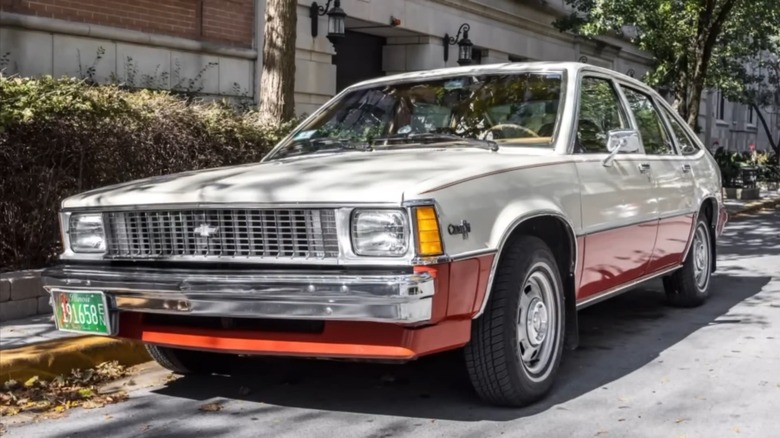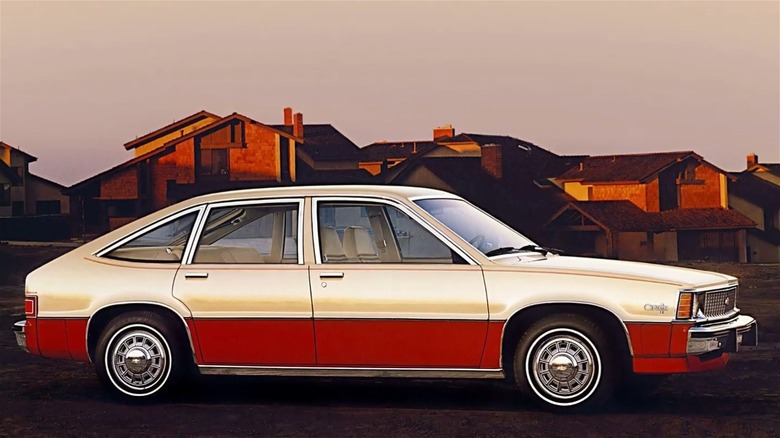What Went Wrong With The Chevrolet Citation? Why The Hatchback Failed
The automotive industry landscape in 1980 was tumultuous, especially for some American manufacturers. Japanese imports had exploded stateside, leading President Reagan to take action to curb the avalanche of foreign competition, asking for voluntary restrictions stating, "until our industry gets back on its feet," as reported by The Washington Post.
Foreign cars were different from American models at the time, in that they featured front-wheel drive and offered more efficiency with better miles-to-the-gallon. U.S. automakers were still manufacturing massive vehicles like the Mercury Grand Marquis (213.5-inch length), and the Buick Lesabre Sedan (218.4-inch length), which ran counter to the compact imports with smaller engines.
To compete, General Motors hatched a plan to introduce something to rival the popular imports luring customers away. The Chevrolet Citation launched in 1979 and ran for five years offering both a two-door hatchback, and a four-door hatchback. The new front-wheel powered American compact with a base 2.5-liter four-cylinder engine sold more than 811,000 units in 1980, per Auto.HowStuffWorks.com.
Despite great sales numbers, the Citation was rushed, poorly designed, and suffered so many defects to vital safety systems, the U.S. Department of Justice became involved. The Citation was so bad, it easily made our list of the 12 worst cars ever made. Fortunately, for the Citation, it manages to escape Chevy's biggest car flops of all time.
The Citation featured an unnerving lack of stability, locking brakes, and demands for recalls
The Chevrolet Citation unfortunately had extremely flexible suspension mounts which can cause a vehicle to corner terribly, and lean heavily over to either side while turning. A soft suspension reduces the amount of driver control, affecting steering, and causing uneven wear across the tires.
Most notably, reports were coming out that the Citation's rear wheels would lock when aggressively applying the brakes. When rear tires suddenly refuse to turn, a vehicle can experience a severe spin prior to stopping, causing loss of control. In the case of the Citation, as word got around of its braking malfunction, drivers became increasingly fearful after hearing about several vehicle collisions, and deaths resulting from the issue. While locking brakes are a severe issue, the deadliest car recalls in history showcase even more dangerous malfunctions drivers have encountered over the years.
With two GM recalls failing to rectify the situation, the U.S. Justice Department took the automaker to court arguing they were responsible for 71 injuries and 15 fatalities, per Time.com. With thousands of reports against the Chevrolet Citation, despite GM getting the case against them terminated, the legal proceedings extended into the late 80s and public opinion had already passed judgement on the troubled car. According to CurbsideClassic.com, by its second production year, the Citation sales had dropped off to just half of the previous year with a total of 413,000 units with diminishing numbers going forward.

